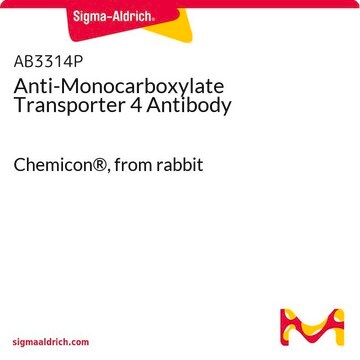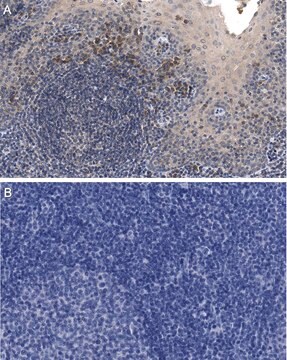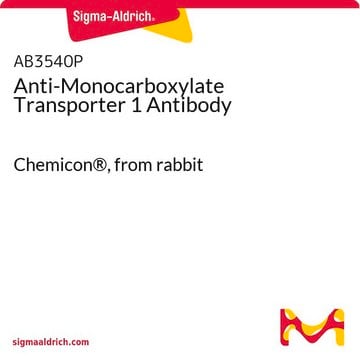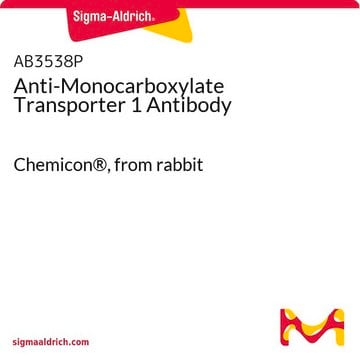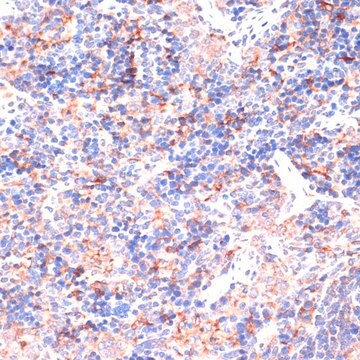AB3316P
Anti-Monocarboxylate Transporter 4 Antibody
Chemicon®, from rabbit
Synonyme(s) :
MCT4
About This Item
Produits recommandés
Source biologique
rabbit
Niveau de qualité
Forme d'anticorps
affinity purified immunoglobulin
Type de produit anticorps
primary antibodies
Clone
polyclonal
Produit purifié par
affinity chromatography
Espèces réactives
human
Fabricant/nom de marque
Chemicon®
Technique(s)
ELISA: suitable
western blot: suitable
Numéro d'accès NCBI
Numéro d'accès UniProt
Conditions d'expédition
dry ice
Modification post-traductionnelle de la cible
unmodified
Informations sur le gène
human ... SLC16A3(9123)
Spécificité
Note: According to new nomenclature, the old MCT3 has now been reclassified as MCT4. Consult Halestrap and Price (1999) Biochem. J. 343:281-299.
Immunogène
Application
Neuroscience
Ion Channels & Transporters
Immunohistochemistry: Not tested. Recommended antibody testing dilution: 5-10 μg/mL on paraformaldehyde fixed tissue.
ELISA: 1:10,000-1:100,000 using 50-100 ng control peptide (Catalog number AG219) per well.
Optimal working dilutions must be determined by the end user.
Liaison
Forme physique
Stockage et stabilité
Autres remarques
Informations légales
Clause de non-responsabilité
Vous ne trouvez pas le bon produit ?
Essayez notre Outil de sélection de produits.
Code de la classe de stockage
12 - Non Combustible Liquids
Classe de danger pour l'eau (WGK)
WGK 2
Point d'éclair (°F)
Not applicable
Point d'éclair (°C)
Not applicable
Certificats d'analyse (COA)
Recherchez un Certificats d'analyse (COA) en saisissant le numéro de lot du produit. Les numéros de lot figurent sur l'étiquette du produit après les mots "Lot" ou "Batch".
Déjà en possession de ce produit ?
Retrouvez la documentation relative aux produits que vous avez récemment achetés dans la Bibliothèque de documents.
Notre équipe de scientifiques dispose d'une expérience dans tous les secteurs de la recherche, notamment en sciences de la vie, science des matériaux, synthèse chimique, chromatographie, analyse et dans de nombreux autres domaines..
Contacter notre Service technique